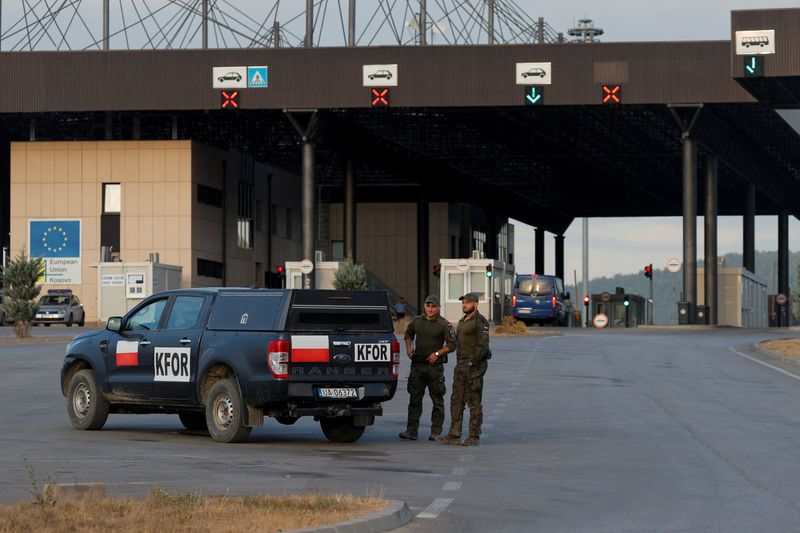By Fatos Bytyci
PRISTINA (Reuters) – Lingering ethnic tension in northern Kosovo could trigger a repeat of the violence seen in the area last year, when four people were killed in a shootout and NATO peacekeepers were injured in clashes. , a senior military alliance official warned on Saturday. .
Kosovo is predominantly ethnic Albanian, but some 50,000 Serbs in the north reject Pristina’s rule and see Belgrade as their capital. Kosovo, a former Serbian province, declared independence in 2008, a decade after a guerrilla uprising.
U.S. Navy Adm. Stuart B. Munsch, commander of the Allied Joint Forces Command in Naples, which oversees NATO peacekeeping in Kosovo, said the alliance remained concerned about the risk of a repeat of the violence in Kosovo. the volatile north.
“Heated political rhetoric could inspire some non-governmental forces to commit acts of violence like what happened last year,” Munsch told reporters in Pristina.
“I wouldn’t say that a conflict is definitely coming, I think there is a persistent risk,” he said, referring to the lack of progress in EU-brokered talks between Kosovo’s government and Serbia.
A police officer and three gunmen were killed in September 2023 when a group of heavily armed attackers entered from Serbia and attacked police in the village of Banjska.
Four months earlier, more than 90 soldiers were injured when Serbian protesters attacked NATO peacekeepers.
Kosovo accused Serbia of being behind the attack on Banjska, but Belgrade denied the accusations.
The United States and the European Union, Kosovo’s main global allies, have criticized the government in Pristina for taking unilateral actions in the north that could spark ethnic violence and put at risk the lives of some 4,000 NATO soldiers on duty there. .
Kosovo rejects such criticism and the issue has strained Pristina’s ties with its Western supporters.
As part of the EU-brokered dialogue, Kosovo and Serbia have been holding talks for more than a decade to normalize their relations, but there has been little progress.
Like the Serbs living in northern Kosovo, Belgrade also considers Kosovo part of Serbia and refuses to recognize it as a state.
(Reporting by Fatos Bytyci; Editing by Helen Popper)


